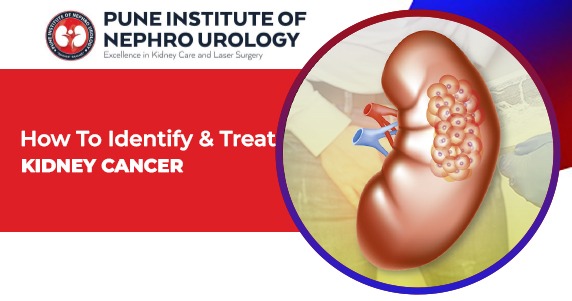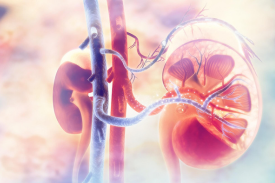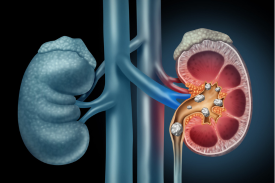Kidney cancer, also known as renal cancer, is a type of cancer that starts in the kidneys. The kidneys are a pair of organs located in the back of the abdomen that filters waste products from the blood and removes them from the body in the form of urine. Kidney cancer can occur in both adults and children, but it is more common in adults.
There are several types of kidney cancer, but the most common type is renal cell carcinoma, which accounts for about 90% of all kidney cancer cases. Other types of kidney cancer include transitional cell carcinoma, Wilms tumour, and clear cell sarcoma.
Symptoms of kidney cancer can include blood in the urine, a lump in the abdomen, and persistent pain in the back or side. However, many people with kidney cancer have no symptoms in the early stages of the disease.
If you suspect that you have kidney cancer, it is important to see a doctor. Your doctor will perform a physical examination and may also order blood and urine tests, as well as imaging tests such as a CT scan or MRI, to determine if you have cancer and, if so, the extent of cancer.
Treatment options for kidney cancer depend on the stage of cancer and can include surgery, radiation therapy, and chemotherapy. Surgery is the most common treatment and can include a partial nephrectomy, in which only the tumour and a small margin of surrounding healthy tissue are removed, or a radical nephrectomy, in which the entire kidney is removed.
If the cancer is detected at an early stage and has not spread beyond the kidney, surgery alone can be curative. In more advanced stages of kidney cancer, radiation therapy and/or chemotherapy may be used to shrink the tumour and slow the growth of cancer.
In addition, a new class of drugs called targeted therapy, which attacks specific molecules involved in the growth and spread of cancer cells, has become available to be used in combination with other treatments to improve outcomes and reduce side effects.
It is important to note that early detection is key to the most successful outcome. Regular screenings, as well as a healthy lifestyle, can reduce the risk of kidney cancer.
It is important to work closely with a doctor experienced in the treatment of kidney cancer. A multidisciplinary team, which includes surgeons, radiation oncologists, medical oncologists, and other specialists, can work together to determine the best treatment plan for your individual case.
It’s always worth scheduling a regular checkup and if you notice any unusual symptoms it is best to consult a doctor immediately. Early diagnosis and treatment can greatly improve the prognosis for people with kidney cancer.




